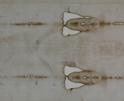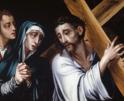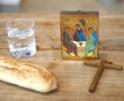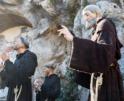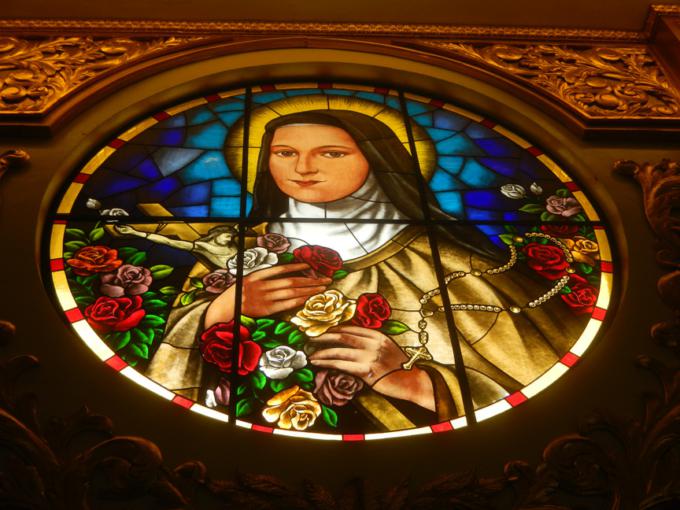
Spirituality
... at that Mass 20 years ago, this great pope, who knew well what great learning was, declared that a girl who had received no formal education, published no books, held no teaching position ... was to be accounted a Doctor of the Universal Church.
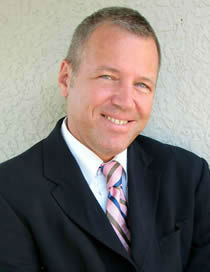
Pakaluk
''Everyone realizes that today something surprising is happening." So said Pope John Paul II back in 1997, when, at a Mass for World Missions in St. Peter's Square, he proclaimed St. Therese of Lisieux a Doctor of the Universal Church.
But, have we realized even today, over 20 years later, what took place and what it means for us?
There are over 30 "Doctors of the Church." They include St. Thomas Aquinas, St. Robert Bellarmine, St. Bonaventure, St. Leo the Great, St. Athanasius, St. Augustine, and St. Jerome.
As that list reveals, most doctors show extraordinarily high learning and a comprehensive range of teaching, such that it would take an accomplished scholar a lifetime of unrelenting effort to get a good grasp of (most of) their work. Think of some eminent teachers in our own time who are distinguished, prolific, and profound -- Pope John Paul II himself, for instance, or Pope Benedict XVI. For all we know, as great as are the attainments of these men, they will never be declared a Doctor of the Church.
Of course, they might. But the point is that the bar for a Doctor of the Church is very high. As the traditional formula has it, someone accounted a Doctor of the Church must be "eminent in teaching, conspicuous for a life of holiness, and declared such by the Church" ("eminens doctrina, insignis vitae sanctitas, Ecclesiae declaration").
And yet, at that Mass 20 years ago, this great pope, who knew well what great learning was, declared that a girl who had received no formal education, published no books, held no teaching position, and hardly lived to maturity, dying at age 24 -- "a woman, a young person, a contemplative," as he put it -- was to be accounted a Doctor of the Universal Church. And he knew that it was surprising.
A "doctor" is a "teacher" -- that is what the word means (which is why, by the way, the word is not reasonably restricted to physicians, as some have argued). A "universal" doctor has something to teach everyone in the Church, at all times. No doubt 500 years from now, if the world lasts, the significance of St. Therese's teaching will be different. But what should one say is its main meaning for our generation today?
A good starting point might be what Pope John Paul II says: "In a time like ours, so frequently marked by an ephemeral and hedonistic culture, this new doctor of the Church proves to be remarkably effective in enlightening the mind and heart of those who hunger and thirst for truth and love."
He also says, "It is precisely this convergence of doctrine and concrete experience, of truth and life, of teaching and practice, which shines with particular brightness in this saint, and which makes her an attractive model especially for young people and for those who are seeking true meaning for their life."
This great pontiff observes that "young people . . . And those seeking true meaning for their life" are often given "the emptiness of so many words." But instead of words, "Therese offers another solution, the one Word of salvation which, understood and lived in silence, becomes a source of renewed life. She counters a rational culture, so often overcome by practical materialism, with the disarming simplicity of the 'little way' which, by returning to the essentials, leads to the secret of all life: the divine Love that surrounds and penetrates every human venture."
So, what do you and I do about it now?
First, I would say (as her feast day approaches, Oct. 1) we must turn to St. Therese's autobiography, "The Story of a Soul," and read it contemplatively. It's possible to read the book quickly, to "know what it says," to become acquainted with the saint. I suppose it's the kind of book that must be read quickly the first time. But such a reading would not count as "being taught" by this Doctor. For that purpose, a slow reading is called for, maybe a paragraph a day, prayerfully, with self-examination, in the manner of "lectio divina."
After all, St. Therese is alive. She is not a dead author from the past. She said that she wanted to "spend her heaven doing good on earth" -- "raining down roses." We believe, then, that she can be invoked and that, through her prayers, you will be assisted in understanding her writing, just as if she were beside you, reading the text with you in a seminar.
It is her role to teach; she knows it. St. John Paul II has declared it: then ask for it. She is your teacher and mine. Of course, the Holy Spirit will be your true instructor.
But second, since we cannot expect that others will study her in the same way -- she is a Doctor of the Church, not of the "spiritus mundi," or of Facebook and Twitter -- we have to learn her way of "spiritual childhood" well enough so that we can bring it to others. We will impart that "instruction" to others, in our turn, not so much by our words (although these will be charitable), as by our way of life -- especially by what we place first, and by the familial warmth of our hearts.
It's a message which the educated, the prestigious, the free, the powerful, and the wealthy need to hear most of all.
- Michael Pakaluk, an Aristotle scholar and Ordinarius of the Pontifical Academy of St. Thomas Aquinas, is a professor in the Busch School of Business at the Catholic University of America. He lives in Hyattsville, MD, with his wife Catherine, also a professor at the Busch School, and their eight children. His latest book, on the Gospel of Mark, is "The Memoirs of St Peter." His next book,"Mary's Voice in the Gospel of John," is forthcoming from Regnery Gateway.
Recent articles in the Spirituality section
-
He saw the cloths and believedBishop Robert Barron
-
God's instrument for viewing the crucifixionMichael Pakaluk
-
QuinquagesimaMichael Pakaluk
-
Pro-life Christians: Now is the time to shout from the rooftopsBishop Robert Barron
-
Seeking an indulgence as an act of faithMichael Pakaluk

